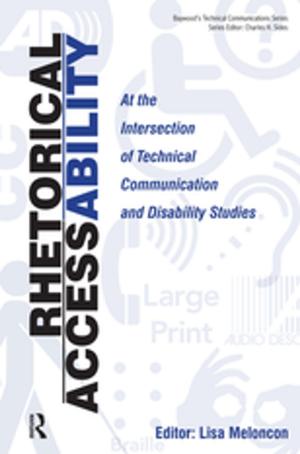On Freud's Group Psychology and the Analysis of the Ego
Nonfiction, Health & Well Being, Psychology, Applied Psychology, Interpersonal Relations, Mental Health| Author: | ISBN: | 9780429916939 | |
| Publisher: | Taylor and Francis | Publication: | June 4, 2018 |
| Imprint: | Routledge | Language: | English |
| Author: | |
| ISBN: | 9780429916939 |
| Publisher: | Taylor and Francis |
| Publication: | June 4, 2018 |
| Imprint: | Routledge |
| Language: | English |
The sixth volume in the series "Contemporary Freud: Turning Points and Critical Issues," published with the International Psychoanalytic Association, turns to Group Psychology and the Analysis of the Ego (1921). In this classic text Freud offered an analysis of the roots of group identity, of the contagions of panic and fanaticism, and of the submission of the individual to the leader that only gained cogency with each passing decade of the troubled twentieth century. And Freud's insights have become more relevant still in the aftermath of the shattering events of September 11, 2001.
Following an introduction to the volume by Ethel Spector Person and a summary and abridgement of Freud's text by John Kerr, the contributors to this volume - Didier Anzieu, Robert Caper, Abraham Zeleznik, Andre Haynal, Ernst Falzeder, Yolanda Gampel, and Claudio Laks Eisirik - provide commentaries on Freud's work, explicating the multiple ways in which Freud's insights continue to illuminate the irrational dynamics to which all groups, including psychoanalytic institutions, are prey. Serving as both an introduction to, and an elegant expansion of, Freud's texts, this volume demonstrates the role of psychoanalytic hypotheses in obtaining deeper insight into the tectonic shifts in group psychology underlying today's mass society.
The sixth volume in the series "Contemporary Freud: Turning Points and Critical Issues," published with the International Psychoanalytic Association, turns to Group Psychology and the Analysis of the Ego (1921). In this classic text Freud offered an analysis of the roots of group identity, of the contagions of panic and fanaticism, and of the submission of the individual to the leader that only gained cogency with each passing decade of the troubled twentieth century. And Freud's insights have become more relevant still in the aftermath of the shattering events of September 11, 2001.
Following an introduction to the volume by Ethel Spector Person and a summary and abridgement of Freud's text by John Kerr, the contributors to this volume - Didier Anzieu, Robert Caper, Abraham Zeleznik, Andre Haynal, Ernst Falzeder, Yolanda Gampel, and Claudio Laks Eisirik - provide commentaries on Freud's work, explicating the multiple ways in which Freud's insights continue to illuminate the irrational dynamics to which all groups, including psychoanalytic institutions, are prey. Serving as both an introduction to, and an elegant expansion of, Freud's texts, this volume demonstrates the role of psychoanalytic hypotheses in obtaining deeper insight into the tectonic shifts in group psychology underlying today's mass society.















